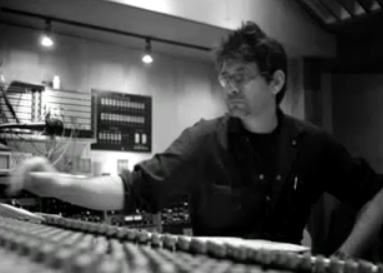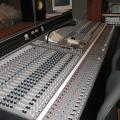Yesterday, I found this interesting video/interview of Steve Albini from December 9, 2010. I really like his style and angle of ‘engineer’ vs. ‘producer’ and how he focuses on capturing the instrument. I thought some of things in this interview was pretty interesting. The segue music is enough to put a ice pick through my ears though, but if you can get through that, there are some cool points discussed in here.
[iframe_loader width=”425″ height=”344″ frameborder=”0″ longdesc=”” marginheight=”0″ marginwidth=”0″ name=” click_words=”” click_url=”” scrolling=”auto” src=”http://www.youtube.com/embed/yRAc3hx5pok”]
You can read the full post at leedsmet.ac.uk
After watching this I was contemplating a few points. Interested what you think as well (please comment below). One big point was the archivable media discussion. It’s interesting to think that analog is so archivable where digital media is not, based on formatting technologies, etc. On one hand.. I agree. Thinking about a Edison phonograph using a beeswax cylinder with grooves is still playable today. The argument over digital is that the technology will change, formats are lost and old devices go away. I guess on one hand I agree. Needle and groove technology is simple. All phonographs could go away. It’s pretty hard to find a Edison phonograph today, but I guess you could build one. I think that’s one point that Steve didn’t consider.. at some point someone could write software to read an unsupported format. I know it’s not easy, but I don’t think whipping out a quality phonograph isn’t super simple either.
Another point that I’ve been pondering. And I want to say, I’m not arguing or disagreeing, but just thinking out loud. Steve mentioned the issues that he was not comfortable dealing with in the digital medium. He talked about virtual space, formatting, etc. I definitely agree, dealing with some of these things suck. I also personally have issues with working with virtual interfaces. I sorta need dials… me thinks. But, I would also have to say there are some big deals on the analog side of things. Head alignments, demagnitization, cleaning, there are a ton to consider. For a while there I remember working with digital ADATs (digital information stored in a analog format – SVHS tapes) and having to deal with interpolation errors, and having to clean the units after X amount of hours. Those are definitely issues to consider when working with physical devices that record. Also, we haven’t even talked about cost. For very little cost you could be up and running in the digital world with no media costs (beyond drives). Analog machines definitely have a higher price tag for purchase, as well as time/money for maintenance, spare parts, etc.
I think it really comes down to your comfort zone and what you’re familiar with. If you’re familiar with one, it’s hard to go 180 degrees to the other way.. for anyone or anything. Steve Albini is a master in the analog world, there is no point trying to argue that he needs to explore digital. What’s the point? Likewise, if you’re a virtual digital guru, why preach that you need to go to tape. Both have pros and cons, it comes down to what you’re interested in, what you’re familiar with, and what you think sounds the best. Either way, I thought his talk was very interesting and obviously it got me thinking.. which is a good thing.
Love to hear your thoughts on this, please comment below!




